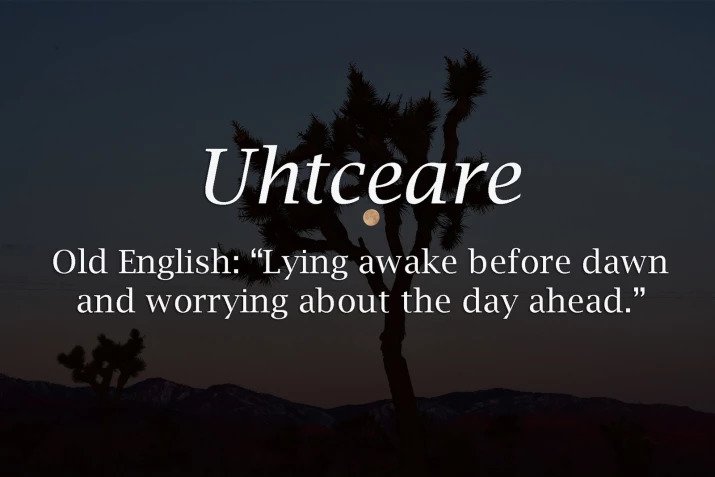Lost words of English that we should probably reclaim
by Clive Thompson from on (#3DYWT)

Uht (pronounced oot) is the restless hour before the dawn, when Aurora herself is loitering somewhere below the eastern horizon, rosying up her fingers and getting ready for the day. But for now, it is dark. And in the antelucan hush you should be happily slumbering and dreaming of pretty things.If you are not, if you are lying there with your eyes wide open glaring at the ceiling, you are probably suffering from a severe case of uhtceare. There's an old saying that the darkest hour comes just before the dawn. However, that's utter tosh. If you get out of bed and peek through the window, you will see a pale glow in the east. But don't, whatever you do, actually get out of bed. It's probably chilly and you'll never get your posture in bed (technically called your decubitus) quite right again. You'll just have to lie there and try not think about how horrid it all is. Ceare (pronounced key-are-a) was the Old English word for care and sorrow, emotions that have an annoying habit of striking during the uht. For some reason these early hours are the time when you remember all your sins and unpaid bills and, perhaps, the indelicate thing you did last night, and as each of these creeps into your mind your uhtceare grows more and more severe. For an affliction so common, uhtceare is a very rare word. It is recorded only once, in a poem called The Wife's Lament, which, surprisingly, isn't about how awful and messy her husband is, but about how he has been exiled to a far country and left her here with her uhtceare and her vicious in-laws. Old English poetry is almost universally miserable, and Old English poets should really have bucked up a bit, but they did give us uhtceare and for that we should be grateful.